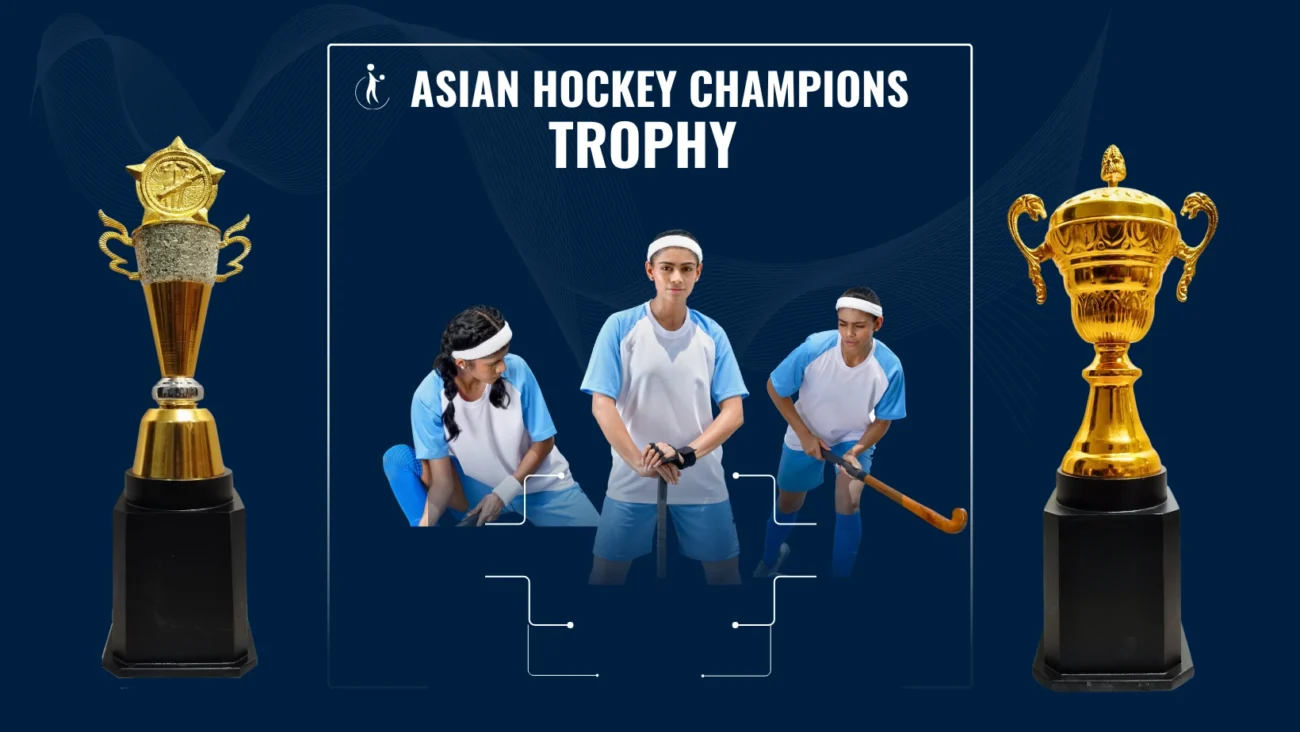
Hockey Asian Champions Trophy 2023 – History, Format & Highlights
The Hockey Asian Champions Trophy is Asia’s most prominent field hockey championship, featuring the best-performing national teams on the continent. From its launch in 2011, the event has become extremely competitive and an important warm-up platform for the world tournaments like the Hockey World Cup and the Olympics.
In this post, we will look at the history, format, importance, and highlights of the 2023 version of the Asian Champions Trophy.
What is the Hockey Asian Champions Trophy?
Hosted by the Asian Hockey Federation (AHF), the Hockey Asian Champions Trophy is conducted for men’s and women’s teams. The tournament is played in a round-robin manner, which culminates into semifinals and a grand final.
Participating Nations typically are:
India
Pakistan
Malaysia
Japan
South Korea
China (occasionally)
It is not merely about winning titles but also about training, exposure, and regional hockey dominance.
History of the Tournament
2011 (Introduction): Added to elevate the competitive level of Asian hockey.
Early Years: India and Pakistan were the dominant forces in the early years.
Development: Teams like Malaysia, Japan, and China began participating, increasing the intensity of play.
Recent Significance: It has become an important tournament for gearing teams up for world-class competitions such as the Olympics.
⚙️ Tournament Format
Round-Robin Stage: All teams against each other.
Points System: Semifinalists determined by wins and draws.
Finals: Top 4 teams go on to knockouts, culminating in the Grand Final.
Importance of the Hockey Asian Champions Trophy
Gives top-level competition to Asian nations.
Aids teams in qualifying and preparing for Olympics & Hockey World Cup.
Increases the popularity of hockey in nations where exposure is scarce.
A platform for emerging talent to shine and flourish.
Hockey Asian Champions Trophy 2023 – Main Highlights
India, Pakistan, Malaysia, Japan, South Korea, and China fought for the championship in the 2023 tournament.
Main Takeaways:
India’s Dominance: India remained strong with a mix of youth and experience.
Pakistan’s Comeback: Pakistan indicated resurgence with attacking hockey.
Malaysia’s Rise: Consistency with potent attackers.
Japan’s Tactical Play: Prioritized discipline and technical defense.
South Korea’s Defense: Strong build-up with rapid counterattacks.
Emerging Stars: Indian & Malaysian young players left a strong impression.
The Final Confrontation
The 2023 final was a heart-pumping encounter, highlighting the competitiveness of Asian hockey. It demonstrated that the Asian Champions Trophy has evolved into a key platform for probing strategy and shaping future legends.
Conclusion
The Hockey Asian Champions Trophy 2023 cemented itself as a crucial hockey tournament in Asia. With countries such as India, Pakistan, Malaysia, Japan, and South Korea continuously changing, the tournament will play an even larger part in deciding the future of hockey in Asia.
❓ FAQs on Hockey Asian Champions Trophy
Q1: When was the Hockey Asian Champions Trophy first held?
➡️ The tournament was initially launched in 2011 by the Asian Hockey Federation.
Q2: Who takes part in the Asian Champions Trophy?
➡️ India, Pakistan, Malaysia, Japan, South Korea, and China are usual participants.
Q3: Who won the Hockey Asian Champions Trophy 2023?
➡️ India was among the best performers in the 2023 season, extending its dominance.
Q4: What is the tournament format?
➡️ It involves a round-robin competition, followed by semifinals, and the grand final.
Q5: Why is the tournament significant?
➡️ It is preparation for events such as the Hockey World Cup and the Olympics while promoting hockey popularity in the Asian continent.
Visit our Instagram to know more
